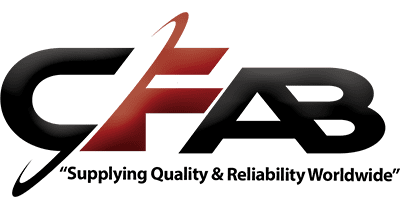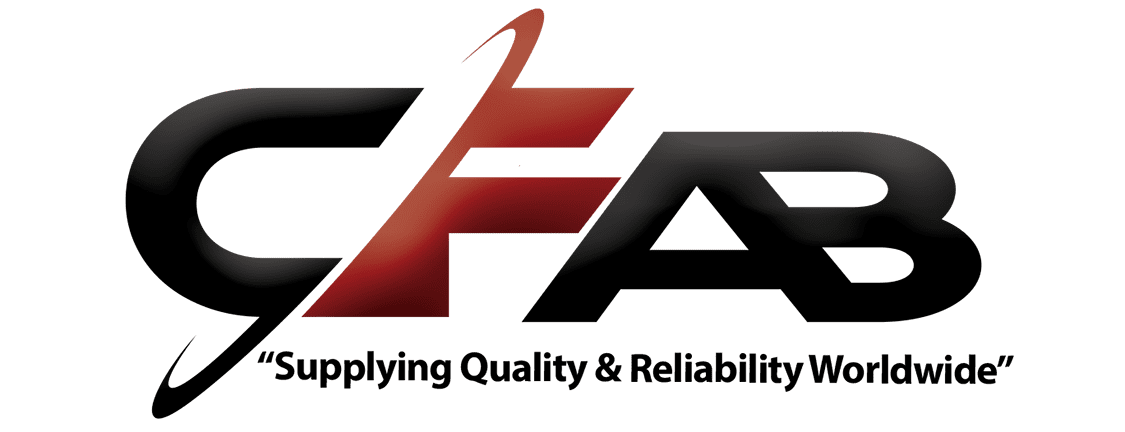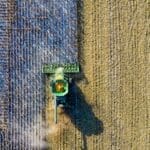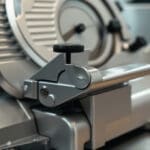Why Farm Implements are Essential for Modern Farming
When it comes to modern agriculture, farm implements are indispensable tools that significantly enhance productivity and efficiency. These tools range from basic plows to advanced seeders and balers, catering to the diverse needs of farmers everywhere.
To get a quick understanding of farm implements:
- Plows: Turn and aerate the soil
- Harrows: Break down soil clumps and level the ground
- Seeders: Plant seeds uniformly
- Balers: Gather hay, straw, or corn stalks into compact bales
- Spreaders: Distribute fertilizers or manure evenly
Farm implements are critical in reducing manual labor and increasing farming productivity. They ensure various farm tasks are done more efficiently and with better precision. Whether it’s preparing the soil, planting seeds, or managing crops, the right equipment can turn a time-consuming job into a straightforward task.

I am Todd Cleppe, Executive Engineer at CFAB Global, with over 25 years of experience in designing and improving farm implements and machinery. Throughout my career, I have focused on crafting solutions that boost productivity and minimize equipment downtime.
Let’s dive into the essential types of farm implements that every modern farmer should consider.
Types of Farm Implements
Plows
Plows are the backbone of soil preparation. They turn over the soil, burying weeds and crop residue, and create a fresh layer for planting.
Moldboard Plows: These are the classic plows with curved blades that cut and turn the soil. They are excellent for breaking new ground and burying crop residues.
Disc Plows: These feature a series of large discs that cut through the soil. They’re ideal for hard or dry soils and can handle rocky conditions better than moldboard plows.
Chisel Plows: These use narrow shanks to break up and aerate the soil without turning it over completely. They’re great for reducing soil erosion and maintaining soil moisture.
Harrows
Harrows are used after plowing to further break up the soil, level it, and prepare a fine seedbed.
Spring Harrows: These older-style harrows use flexible iron teeth to agitate and loosen the soil. While not common today, they’re still useful in certain conditions.
Roller Harrows: These look like large spiked tubes. They crush and firm the soil, making it ready for planting.
Chain Harrows: Resembling chain nets with spikes, these harrows aerate the soil and help spread fertilizer evenly.
Disc Harrows: The modern version of spring harrows, disc harrows use rows of discs to break up soil and weeds more thoroughly after plowing.
Seeders
Seeders are crucial for planting seeds quickly and efficiently over large areas.
Broadcast Seeders: These spread seeds evenly over the soil surface. They’re great for small grains and grasses.
Air Seeders: Using air to distribute seeds, these seeders ensure precise placement and are ideal for large-scale farming.
Box Drill Seeders: These seeders drop seeds into the soil in rows. They’re perfect for grains and legumes.
Planters: Designed for precision, planters place seeds at exact depths and spacing. They’re essential for crops like corn and soybeans.
Balers
Balers collect and compress hay, straw, or corn stalks into manageable bales.
Round Balers: These make cylindrical bales that are easy to handle and store. They’re popular for hay and straw.
Square Balers: Producing rectangular bales, these are easier to stack and transport. They’re often used for hay and straw as well.
Large Square Balers: These create bigger bales, reducing the number of bales you need to handle. They’re ideal for large-scale operations.
Fertilizer Spreaders
Fertilizer spreaders distribute nutrients evenly across fields.
Broadcast Spreaders: The most common type, these use gravity to disperse fertilizer over a wide area.
Manure Spreaders: These spread solid manure from livestock. After spreading, a harrow is often used to break it up and mix it with the soil.
Slurry Spreaders: Also known as liquid manure spreaders, these spray a slurry of liquid manure across the field.
Whether you’re a small-scale farmer or managing a large agricultural operation, understanding these essential farm implements can significantly enhance your productivity and efficiency. Next, we’ll explore the attachments and implements that can transform your tractor into a multi-functional powerhouse.
Tractor Attachments and Implements
Plows
Plows are essential tractor attachments that help prepare the soil for planting. They cut furrows into the soil, turning it over to kill surface vegetation and loosen it up. There are different types of plows, each suited for specific soil types and conditions.
-
Moldboard Plows: These have wing-shaped blades that cut and turn the soil. They are perfect for shallow but thorough soil turning, often used on land that hasn’t been farmed for years.
-
Disc Plows: These feature rows of discs that turn the soil and cut up weeds. They are less common but useful for sticky or rocky soils.
-
Chisel Plows: These have long shanks that turn the soil at depths of a foot or more. They are ideal for land used for continuous crop production.
Harrows
After plowing, harrows come into play to further prepare the soil. They break down clumps, level the surface, and redistribute crop residues and weeds.
-
Spring Harrows: These use flexible iron teeth to loosen and agitate the soil. Although older, they are still useful for specific applications.
-
Roller Harrows: These look like large spiked tubes and crush the soil as they roll over it, making it ready for planting.
-
Chain Harrows: These resemble chain nets with spikes and are used to aerate and spread soil and fertilizer.
-
Disc Harrows: Modern versions of spring harrows, these use rows of large discs to break up soil and weeds more thoroughly.
Seeders
Seeders are crucial for efficient planting. They distribute seeds evenly across the field, ensuring optimal growth conditions.
-
Broadcast Seeders: These scatter seeds randomly over the soil surface. They are fast but can be less precise.
-
Air Seeders: These use air pressure to distribute seeds, offering more control and uniformity.
-
Box Drill Seeders: These plant seeds in rows, making them ideal for grains and small seeds.
-
Planters: These are highly precise and plant seeds at specific intervals and depths, perfect for row crops like corn and soybeans.
Balers
Balers collect and compress hay, straw, or corn stalks into compact bales for easy handling, storage, and transport.
-
Round Balers: These create cylindrical bales, which are easier to roll and handle.
-
Square Balers: These produce rectangular bales, which are easier to stack and store.
-
Large Square Balers: These make bigger bales, reducing the number of bales needed and saving time on large farms.
Fertilizer Spreaders
Fertilizer Spreaders are used to distribute fertilizer evenly across the field, ensuring that crops get the nutrients they need.
-
Broadcast Spreaders: These scatter fertilizer over a wide area, covering large fields quickly.
-
Manure Spreaders: These spread solid manure from livestock. After spreading, a harrow is often used to break it up and mix it with the soil.
-
Slurry Spreaders: Also known as liquid manure spreaders, these spray a slurry of liquid manure across the field.
Modern Farming Vehicles
Modern farming relies heavily on specialized vehicles that offer versatility and efficiency. These vehicles are designed to handle various tasks, from plowing fields to harvesting crops. Let’s explore the key types of farming vehicles and their functionalities.
Tractors
Tractors are the backbone of most farming operations. Their primary role is to pull and power various farm implements. However, modern tractors can do much more thanks to various attachments.
-
Compact Tractors: These small yet powerful tractors are perfect for material handling and working in tight spaces. They are ideal for small farms or gardens where maneuverability is crucial.
-
Wheeled Tractors: General-purpose tractors that can be outfitted for tilling, material handling, and pulling equipment. They come in various horsepower ratings, making them suitable for different tasks.
-
Track Tractors: These tractors use tracks instead of wheels, providing better traction and a smoother ride. They are excellent for plowing large fields and handling heavy loads.
-
Specialty Crop Tractors: Designed for orchards and vineyards, these slender tractors can fit between rows of trees and vines, making them perfect for specialized crop maintenance.
Combines and Forage Harvesters
Combines and forage harvesters are essential for large-scale farming, especially for cereal crops.
-
Combines: These machines perform three primary functions—reaping, threshing, and winnowing. They turn cereal crops into grain using a complex system of gears, blades, belts, and wheels. Combines are a significant investment but can dramatically increase harvesting efficiency.
-
Forage Harvesters: Similar to combines, these machines are used to harvest forage plants to make silage. They are crucial for livestock farms that need large quantities of feed.
In northern California and Oregon, combines are commonly used for rice and grass seed, showcasing their versatility in different regions.
ATVs, RTVs, and UTVs
All-terrain vehicles (ATVs), recreational terrain vehicles (RTVs), and utility terrain vehicles (UTVs) are becoming increasingly popular on farms for their versatility and efficiency.
-
Terrain Navigation: These vehicles can navigate various terrains, making them ideal for tasks that require mobility across uneven fields.
-
Attachments: Modern ATVs, RTVs, and UTVs can be outfitted with various attachments, such as sprayers and small trailers, enhancing their functionality.
-
Efficiency: These vehicles are excellent for quick transport around the farm, checking fields, and even light hauling. They save time and reduce the physical strain on farmers.
As we move towards electrification, even these off-road vehicles are seeing advancements. Battery-powered options are becoming more available, offering quieter, more efficient, and environmentally friendly alternatives.
Next, we’ll tackle some frequently asked questions about farm implements to help you understand what you need for your farming operations.
Frequently Asked Questions about Farm Implements
What is a farm implement?
A farm implement is a tool or piece of equipment used to perform various tasks on a farm. These tasks can include plowing, planting, harvesting, and spreading fertilizer. Farm implements make farming more efficient by reducing the manual labor required.
Examples of farm implements:
- Plows: Used for turning and breaking up soil.
- Harrows: Used for smoothing and leveling the soil.
- Seeders: Used for planting seeds in the ground.
- Balers: Used for compressing and binding hay or straw into bales.
- Fertilizer Spreaders: Used for distributing fertilizer evenly over a field.
What implements do I need to farm?
The implements you need will depend on the size and type of your farm. Here’s a basic guide:
For small farms:
- Plow: For initial soil preparation.
- Seeder: For planting seeds efficiently.
- Harrows: For breaking up clods and smoothing the soil.
- Fertilizer Spreader: For applying nutrients to your crops.
- Baler: If you have hay or straw to manage.
For large farms:
- Advanced Plows: Like chisel or disc plows for deeper soil work.
- Air Seeders: For planting large areas quickly.
- Heavy-Duty Harrows: Such as roller or disc harrows for extensive soil preparation.
- High-Capacity Balers: For managing large volumes of hay or straw.
- Precision Fertilizer Spreaders: For accurate nutrient application.
What is the difference between farm equipment and farm implements?
Farm equipment and farm implements are terms often used interchangeably, but they refer to different things.
-
Farm Equipment: This term includes all machinery and vehicles used on a farm, such as tractors, combines, ATVs, and UTVs. Farm equipment is generally larger and more complex, requiring significant investment and maintenance.
-
Farm Implements: These are tools or attachments used with farm equipment to perform specific tasks. Implements are usually smaller and simpler than equipment. For example, a plow is an implement that attaches to a tractor, which is a piece of equipment.
Key differences:
- Size: Equipment is generally larger and more complex than implements.
- Operation: Equipment often requires an operator and power source (like a tractor engine), whereas implements are typically passive tools that need to be pulled or powered by equipment.
- Capabilities: Equipment can perform a wide range of tasks, while implements are designed for specific functions.
Understanding these differences helps in choosing the right tools for your farming needs, ensuring efficiency and productivity.
Next, we’ll explore the various types of farm machinery parts to keep your equipment running smoothly.
Conclusion
Farm implements are the backbone of any agricultural operation. From plows and harrows to seeders and balers, each tool plays a crucial role in ensuring efficient and productive farming.
At CFAB Global, we understand the importance of having the right implements for your specific needs. Our extensive experience since 1998 has made us a trusted partner in machinery support, offering everything from sourcing parts to constructing bespoke equipment and providing installation services.
One of our standout offerings is the Machine Reliability Program. This program is designed to boost productivity, minimize downtime, and extend the lifespan of your machinery components. By adopting our proven strategies, you can significantly reduce the risk of production delays and enhance overall efficiency.
Our commitment to your success doesn’t stop at providing high-quality farm implements. We also offer unparalleled support to ensure your operations run smoothly. Whether you need help with maintenance, repairs, or simply choosing the right tool for the job, our expert team is here to assist you.
For those in the food packaging and processing industry, we proudly partner with Beth-El Machinery Ltd. to offer top-notch equipment solutions that meet the highest hygienic standards.
Ready to take your farming operations to the next level? Contact CFAB Global today and discover how our comprehensive services can transform your productivity and efficiency.
By understanding the right farm implements and leveraging the expertise of a trusted partner like CFAB Global, you can ensure your farm operates at its best, season after season.
